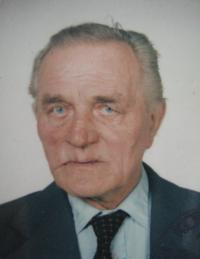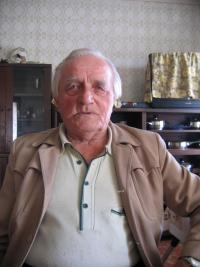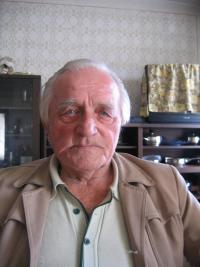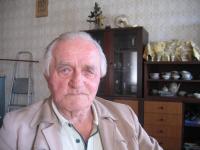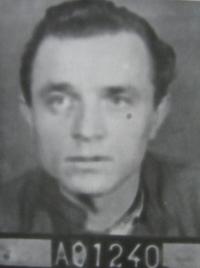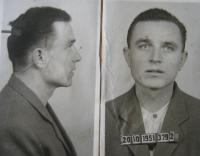“I am not ashamed of my ideals.”

Download image
Václav Kříž was born on the 16th of November, 1925 in Semice-at-Písek, the first-born son of František Kříž and Terezie Křížová, née Žofková. His father was a farmer, his mother helped with the estate and was at home. Kříž had a younger brother, Slávek, who died at sixteen months of age, and a younger sister Jiřina. Kříž completed elementary school in Semice and middle school in Písek. He did not start grammar school because of the Germans’ arrival. In 1942 his father contracted a severe case of pneumonia. It was a more than critical situation. For that reason, Václav was not forced into labour in Germany, and together with his mother he took care of the family. Kříž was present at the liberations by Vlasov’s army, the Americans and the Russians. He also noticed the unusually high activity of the KSČ (Czech Communist Party) in the Písek district, and other suspicious factors that made him wary. Kříž started compulsory military service in October 1947, and he was there, in Týn-upon-Vltava, when then Communists rose to power in the February Coup. The political situation got worse. The garrison commander was retired, along with other officers. Together with several of his fellow soldiers, Kříž started listening to foreign radio and reading the daily news, forming his own opinion of the situation. The death of Foreign Affairs minister Jan Masaryk was the last straw. He decided to act. On the 24th of May 1948, Kříž deserted and headed towards the western border. However, he was caught at the borders and passed over to the OBZ (Defence Intelligence). The first three interrogations by the OBZ took place in Tachov. He was then transferred through Pilsen to the military prison in Hradčany, Prague. The interrogators attempted to prove to him, that he had been in foreign countries, where he supposedly betrayed military secrets. Kříž however repeatedly denied that. The main trial took place at the State Court in Prague on the 17th of December 1948. Kříž’s father was also there, he couldn’t come to terms with what was happening. Václav Kříž was convicted of military treason and sentenced to 15 years of prison, the loss of citizen rights for 10 years and to a quarter-year of fasting and rough lodging. Kříž served his sentence in eleven different jails and Communist labour camps. He spent the longest time in the uranium mining camp of Vojna, near Příbram. The whole time he kept alive the thought of escape. He went through with that plan together with Antonín Polanecký directly through machine-gun fire on the 16th of July 1951, at camp Svatopluk. Thanks to the fact that the two prisoners covered a large stretch of ground in relatively short time, they succeeded in escaping immediate recapture. The pair continued towards the western border. After 15 days, Kříž was reported and arrested close to the borders. He had lost his companion several days beforehand. He was transported back to Svatopluk, placed in solitary confinement and interrogated - when he refused to admit that he and Polanecký wanted to emigrate to the West, they attempted to slap him into compliance, and he was returned to confinement without food. The situation culminated at the camp command center, Zelenka, where Kříž was brutally physically tortured. The court gave him five more years of prison. The much wished-for probation in May 1960 was saddened by the death of his father soon after in July. Kříž lived with his mother in Semice. He worked at a repair shop in Surface Constructions (Pozemní stavby). In 1963, he met Marie Koptová at a dance, and married her the same year in St. Vitus’ Cathedral in Prague. For unknown reasons, the union was childless. The newly-weds moved to Mačkov at Blatná. His wife worked at the local JZD (United Agricultural Co-op), Kříž as a repairman in various car repair shops. Some people still liked to remind him that he was a former political prisoner. He had problems with the StB (State Security), but he did not give up. He refused to join the ROH (Revolutionary Union Movement), he did not vote, he probably kept some sort of contact with the American embassy. He welcomed the year of 1989 with gratitude. His relations with the western allies culminated in the founding of the SPUSA (Association of Friends of the USA) in Blatná. He became a member of the KPV (Confederation of Political Prisoners), which was a natural conclusion to his participation in the founding conventions of the K 231 in 1968. Currently he takes part in the Písek branch of the KPV. He still lives with his wife in Mačkov. They will be celebrating fifty years of their marriage soon. When he thinks back on the years of imprisonment, he is thankful for the opportunity to meet varying characters in extreme situations. He is not ashamed of his actions, as they did not hurt anyone. He merely stood up for his ideals.
